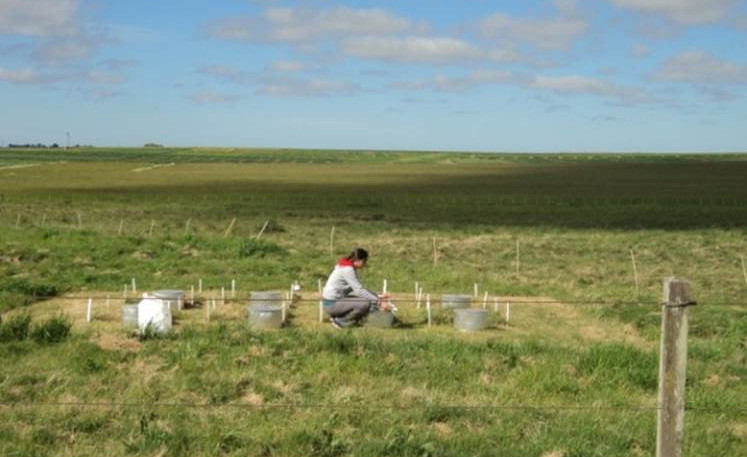Government funds research into climate-resilient plant production
13 September 2022 | News
Lincoln researchers have been granted $10.7 million from the Government’s Endeavour Fund to research how volatile chemicals produced by fungi (FVOC) can be applied in agriculture.
The University’s approved Endeavour Research programme focuses on the development of FVOC products which will enable plants to more strongly resist stress caused by adverse climate conditions or disease.
The new FVOC products can be applied as a seed treatment or incorporated into soil, and will interact with the plant through chemical signalling, inducing changes within the plant which allow it to increase its resistance to abiotic (drought, heat) and biotic (microbes causing plant diseases) stress.
The research programme will be led by Professor John Hampton, with Dr Artemio Mendoza-Mendoza as the key researcher.
Professor Hampton said the new products, when available, will deliver a significant advantage for New Zealand farmers.
“The work we’re doing at Lincoln University will assist New Zealand’s food and fibre sector to meet the challenge of remaining a producer of safe food in a climate change-impacted world, while also demonstrating and maintaining our reputation as environmental kaitiaki.”
In addition to their ability to increase plant resilience and promote growth, the new FVOC products will contribute to more sustainable farming practices in other ways.
Professor Hampton again: “Our new products will contribute to decreasing greenhouse gas emissions through reducing the need to apply chemical pesticides, and consequently the use of fossil-fuel powered machinery.
“Improved plant water-use efficiency resulting from the application of our products will also reduce the need to pump water for irrigation.
“We also see a role for the new products in forestry plantings of both indigenous and exotic species designed to contribute to reducing CO2 release, through allowing increased seedling survival and stronger growth for nursery production.”
The Lincoln research also aims to show how the beneficial impacts of FVOCs on plants are transmitted to the next generation via seed.
The ultimate goal of the research programme is to have commercial FVOC products available for use by New Zealand farmers as soon as 2030.
Once in use, the products will mitigate climate change impacts on pastoral, arable and vegetable production, with the new knowledge generated also able to be applied to native ecosystems to protect them from external stressors including climate change.
Lincoln University Provost, Professor Chad Hewitt, said the FVOC research project exemplified the extent and quality of the research being undertaken at the University.
“As appropriate for Aotearoa’s only specialist land-based university, Lincoln is at the vanguard of the country’s drive to lead the world in the production of outstanding, ethically-raised food and fibre, and our research contributes directly to this ambition.
“By developing seeds already primed for resilience to abiotic and biotic stress – a property that will be passed through plant generations – our FVOC research will deliver the new products, tools and technologies to enable our food and fibre industries to create higher-value products for domestic and international consumers.”
Professor Hewitt said the research was also a fitting exemplar of the University’s commitment to building collaborative partnerships with industry and other research providers to achieve innovative and sustainable solutions to some of the world’s most pressing land-based challenges.
In its Endeavour-funded FVOC research programme, Lincoln University has leveraged existing research partnerships with AgResearch, Massey University, Scion, University of Canterbury, University of Otago, Ngāi Tahu Farming and Forestry, and has established international collaborations in Singapore, Mexico, Austria and USA.


